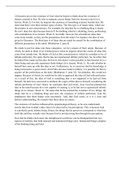Exam (elaborations)
Test answers and summary of all concepts covered in class
- Course
- Critical thinking 2 (YKC200)
The documents include test answers to all the exams and assignments. The answers include a summary of all points that were highlighted by the professor.
[Show more]



